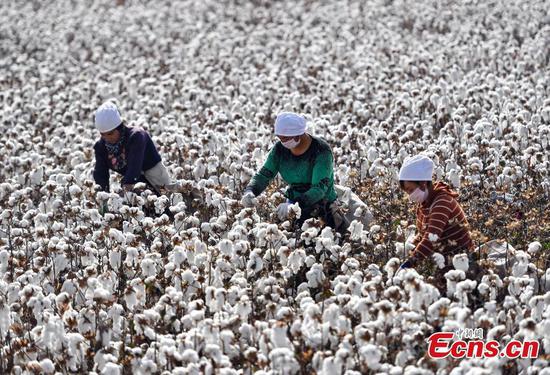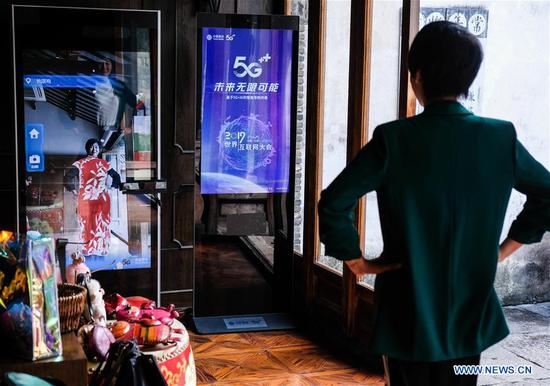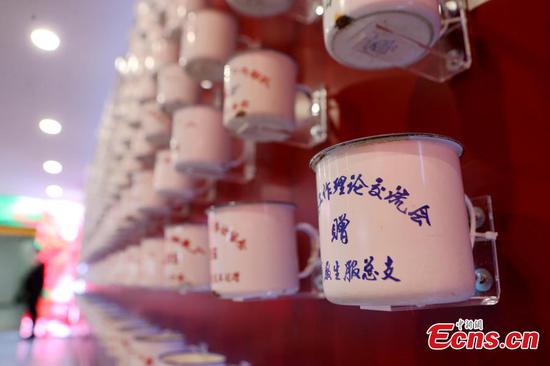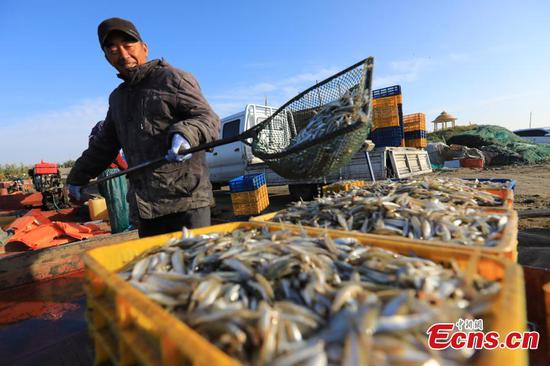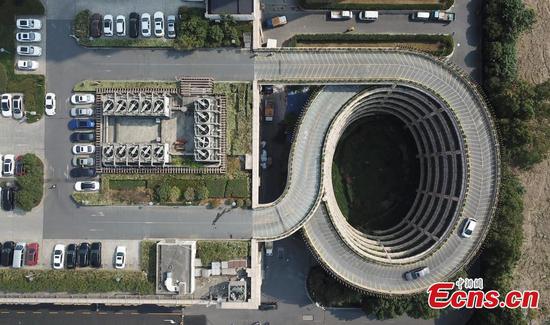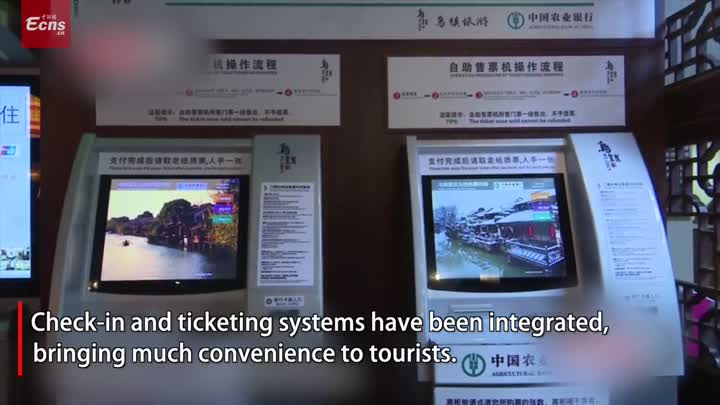
Villagers work at a Rural Taobao service center in Gongmi village of Hailong township in Zunyi, Southwest China's Guizhou Province. (Photo provided to China Daily)
E-commerce site brings high-quality agricultural products to urban dwellers
Mention Taobao and people naturally think of buying clothes, cosmetics and consumer electronics via the e-commerce site. But it is fast becoming a gateway to a wealth of produce from the country's farmlands that was previously unattainable to urban dwellers.
With oranges from Hubei province, honey from Sichuan province and Heilongjiang province's Wuchang rice, known for its natural fragrance, Taobao is now home to hundreds of thousands of agricultural products that can be delivered to people's doorsteps in days after placing an order.
This convenience is supported by an initiative launched in 2014 called Rural Taobao, one of the three key pillar projects of Alibaba Group, in addition to globalization and cloud computing. It aims to buttress trade between China's remote regions and urban areas.
"The goals are twofold: Introducing high-quality but affordable merchandise to villagers and farmers, and selling agricultural products to consumers in cities," said Li Shaohua, vice-president of Alibaba and general manager of its rural business unit. "Both serve to lift more people out of poverty and improve the livelihoods of people living in rural areas."
Currently, about half of China's 1.3 billion citizens reside in rural areas. The setup of the business unit is in line with the country's broader vision of total poverty eradication by 2020. Encouraging self-development and empowerment of poorer populations through novel measures has been proven to be an effective approach, according to experts.
"Multisectoral approaches, targeted strategies, leadership, constant innovation such as using e-commerce to connect farmers to markets have been core enablers of poverty alleviation in China, by adding income and enhancing commitment," said Ehizuelen Michael Mitchell Omoruyi, executive director of the Center for Nigerian Studies, at the Institute of African Studies, Zhejiang Normal University.
To make more quality items accessible to the rural population, a network of e-commerce service centers has been established across the nation. To date, the initiative covers 1,095 counties with more than 30,000 such service points that allow villagers to pick up items purchased via Taobao.
In cooperation with brands, Rural Taobao conducts frequent training sessions for service station managers to equip them with the necessary know-how and skills to deliver the best service to their customers, said Li.
Gong Jianfei, who runs the service center in Lin'an county, Zhejiang province, helps villagers to source items online that are of better quality and at lower prices. She places 40 to 50 orders a day on behalf of buyers, with the goods delivered to the center.
"E-commerce is helping rural people to join the digital economy, and some of them even have started their own businesses online," she said.
The program has partnered with local governments to provide easier access to computers, while Alibaba offers training to villagers on internet searches and online payments.
The e-commerce giant is also working to get hundreds of thousands of small convenience stores in counties and townships online and equip them with the software that uses data analytics to predict sales and manage inventory.
"We've had a lot of challenges, as we couldn't keep up with the pace and often ran out of stock," said Huang Donghai, the owner of Weijun Grocery in Hangzhou, capital of Zhejiang province. "Now, the technology offers a glimpse of the most sought-after items through data analytics, allowing us to order directly from manufacturers and circumvent middlemen, which trims costs."
In a 2018 report, Morgan Stanley said that it expects consumption in China's lower-tier cities and countryside to triple to $6.9 trillion by 2030. To fully tap that potential, Alibaba shares insightful analytics about customer preferences and market trends with the brands, so that companies can develop products or craft marketing campaigns that are more befitting rural consumers.
This is reflected in the June 18 midyear sales event. Under the auspices of "Daily Deals", manufacturers in China design and sell directly to consumers with real-time consumer insights offered by Alibaba in short cycles, giving retailers an effective way to tap into customers in China's smaller cities and rural regions, who want good quality and affordable items.
In terms of promoting farmland produce to city dwellers, digital technologies are also being used. Data powered by Alibaba tracks consumer propensities in various aspects, such as identifying the preferred range of hardness of apples among Chinese customers. "This would in turn guide the planting process of the fruit, for example controlling temperature, humidity, and so on," Li noted.
Wang Xiaoer, who sells local produce in Gansu province, said Alibaba's big data analysis also helped him to identify customer preferences and decide which fruits sell better and at what times of the year.
"Without big data, we were clueless in selling. Now we don't have to worry about the potential waste," he said.
More than 10,000 farms have partnered with Wang in the hope that e-commerce and precise data analysis can boost sales and help their local specialties to go global.
Finally, villagers can enjoy a wider range of products and promote their own products beyond the village borders through livestreaming.
Taobao Live, Alibaba's dedicated livestreaming channel, said it would help cultivate 1,000 livestream hosts across poverty-stricken areas in 100 counties, helping them each generate more than 10,000 yuan ($1,415) in monthly income.
Starting in April, the channel has reserved a fixed section for two hours every day to feature agriculture livestreams to uphold the target of selling 3 billion yuan worth of goods this year.














